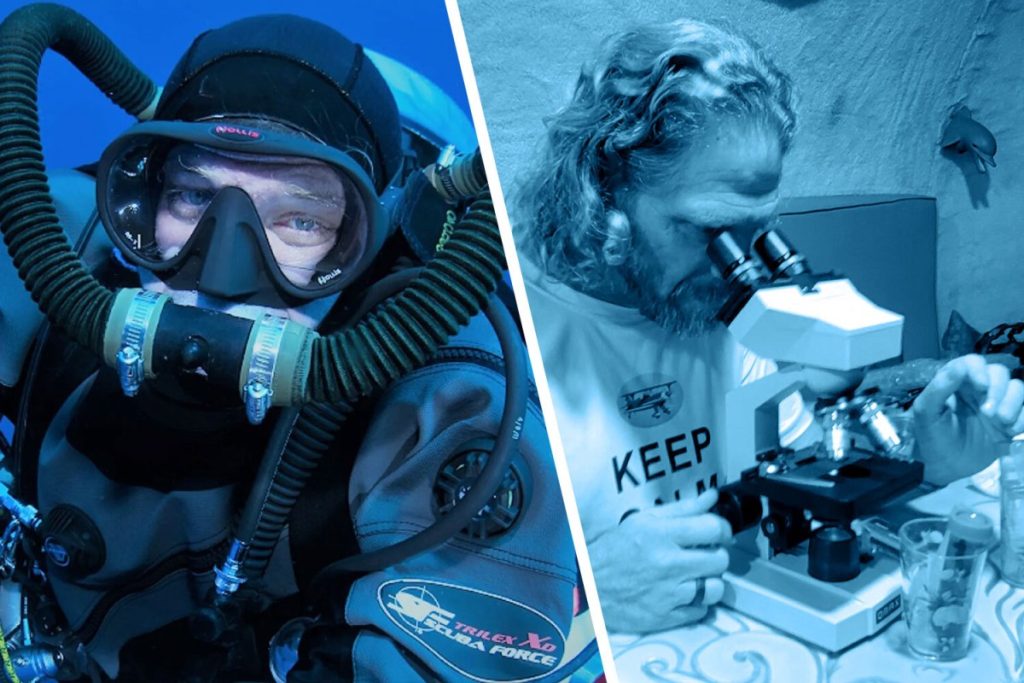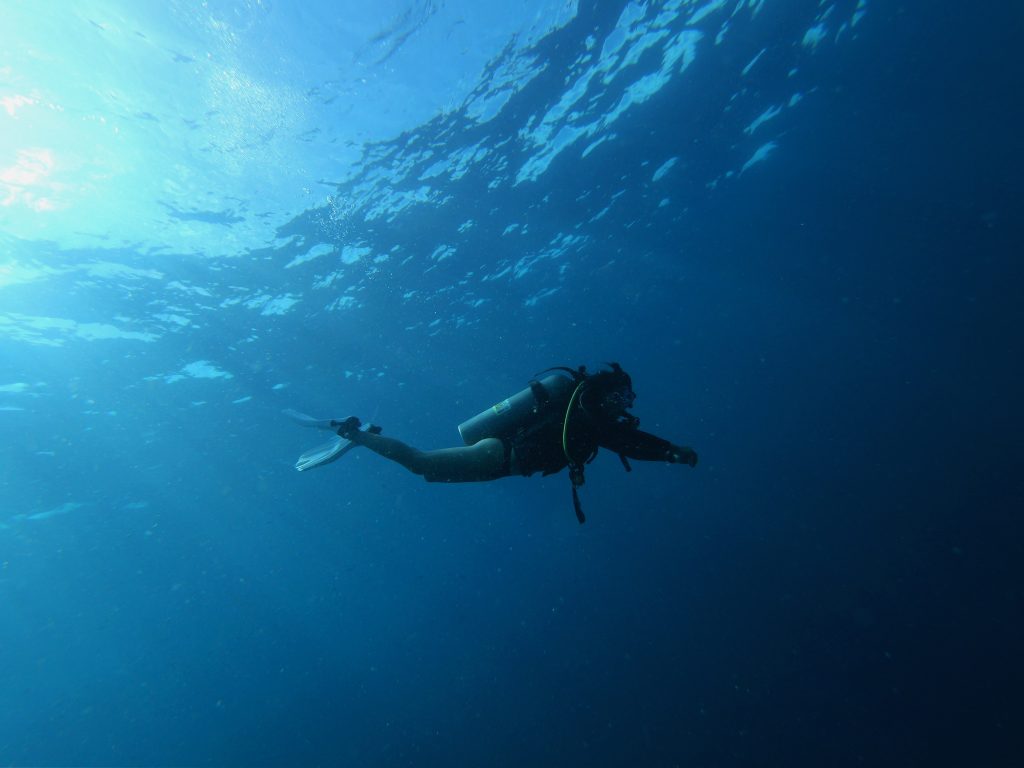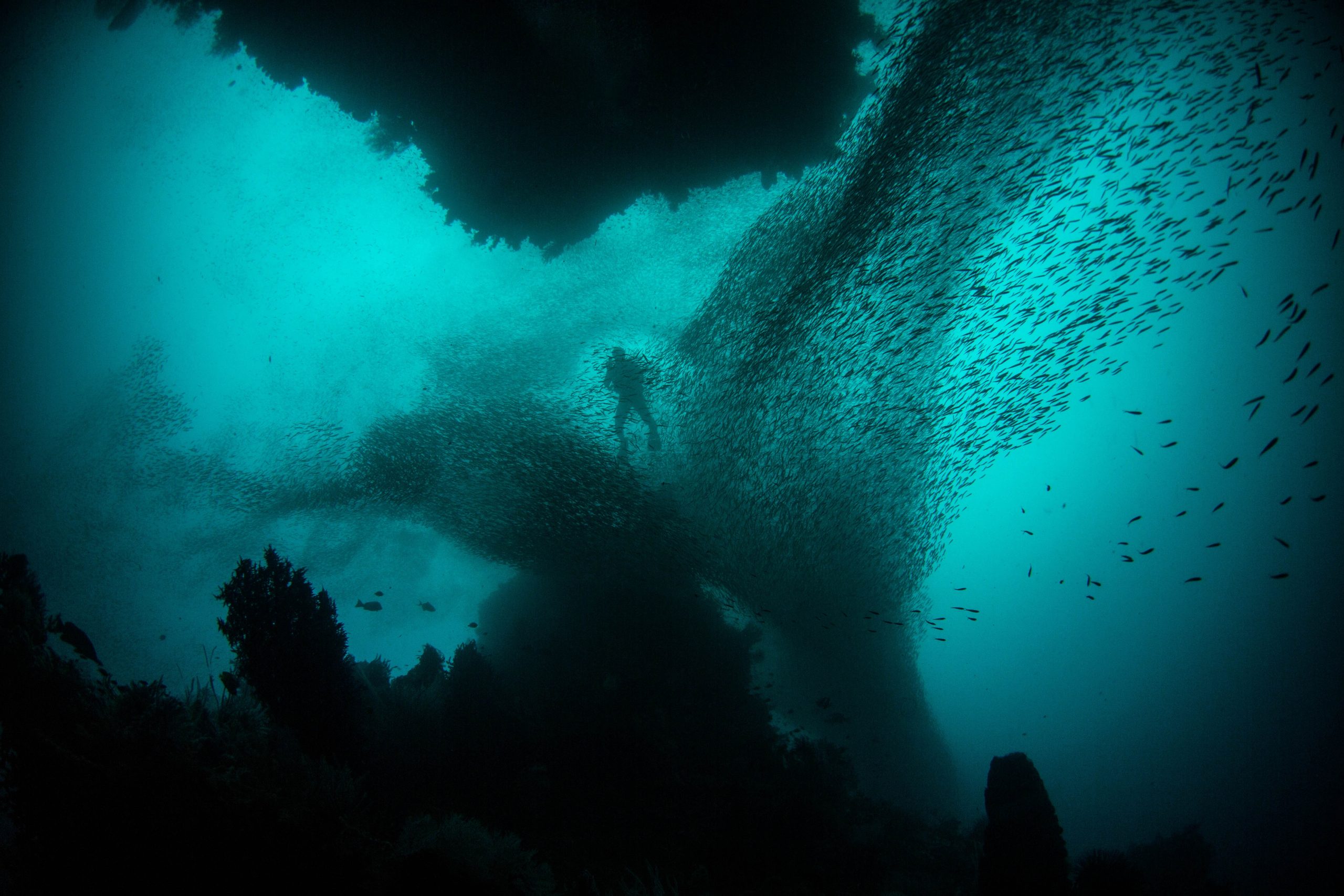 iving underwater for an extended period of time, far beyond what was previously thought possible, is now achievable thanks to a professor attempting to break the record for living underwater. By testing the limits of oceanic exploration, this professor named Joseph Dituri is inspiring other scientists around the world with his ambitious endeavor that has seen him spend 74 days submerged in water. In this article, we will discuss the background of this record-breaking attempt, the preparation and challenges faced by the professor and his team, how he is supported by state-of-the-art technology during his dive and its impacts on both oceanic research and on other scientists.
iving underwater for an extended period of time, far beyond what was previously thought possible, is now achievable thanks to a professor attempting to break the record for living underwater. By testing the limits of oceanic exploration, this professor named Joseph Dituri is inspiring other scientists around the world with his ambitious endeavor that has seen him spend 74 days submerged in water. In this article, we will discuss the background of this record-breaking attempt, the preparation and challenges faced by the professor and his team, how he is supported by state-of-the-art technology during his dive and its impacts on both oceanic research and on other scientists.
Exploring the current record for living underwater
In 2014, a French diver set a new world record by living underwater for 63 days in a special habitat. Now, an ambitious professor is pushing the boundaries of exploration even further by attempting to break this record and stay submerged for 74 days. This feat requires a great deal of preparation and the support of state-of-the-art technology in order to ensure his safety while living underwater.
The professor’s motivation for this endeavor comes from a desire to gain knowledge about oceanic ecosystems and inspire other scientists to take on similar feats. In order to complete this challenge, he had to dedicate several months of preparation which included extensive training, research and the gathering of specialized equipment. He has also gained the support of numerous researchers who are helping him with his mission.
To ensure that he can remain safely submerged during his dive, the professor is relying on advanced technology such as air tanks, communication equipment, oxygen supplies, and sensors that measure temperature and pressure. All these devices have been extensively tested to make sure they will perform well under extreme conditions. Additionally, he has access to sophisticated monitoring systems that keep track of his vital signs such as heart rate and oxygen levels throughout his dive.
Finally, the professor is conducting extensive research during his dive which will be used to improve our understanding of oceanic ecosystems. With each day that passes below the surface, he is making discoveries about the marine environment that could not be found otherwise. By pushing the boundaries of what was thought possible with oceanic exploration, he is inspiring other scientists around the world to take on similar feats in their own fields.
Preparation

Before the professor took his historic dive, he and his team underwent extensive preparation to make sure everything went according to plan. Their rigorous training and testing of all equipment was essential in providing a safe living environment for the professor during his journey. By using a state-of-the-art communication system, they were able to monitor him and adjust their strategy if necessary. Careful calculations of supplies were made in order to provide optimal living conditions for the professor underwater. Additionally, air tanks, sensors and strict protocols were put in place so that any emergency situation could be handled with ease. Through these important steps taken by the professor’s team, a successful dive and safe living environment was achieved.
Challenges Faced
Living underwater for such an extended period of time posed numerous unique challenges to the professor and his team. Pressure changes, isolation from the outside world, nutrition and hydration, temperature fluctuations, and potential encounters with marine life all had to be addressed during this record-breaking 74-day dive.
Pressure is a major issue when living underwater for an extended amount of time. The increased pressure can cause issues such as decompression sickness, or “the bends” if the professor rises up too quickly from his deep water environment. This can cause pain in joints and muscles as well as fatigue, dizziness, confusion, paralysis, or even death if it is not treated properly. To protect against this possibility the professor was trained on how to ascend slowly in order to minimize the risk of decompression sickness.
Living isolated from the outside world for nearly three months also posed a challenge for the professor’s mental health and wellbeing. He was limited in communication with others and faced days where he had no human contact whatsoever. This could lead to feelings of loneliness or depression if not managed properly so he was provided with entertainment options such as movies or books to keep him occupied while submerged.

Nutrition and hydration were also major considerations when living underwater for 74 days straight. The professor needed enough food and drink to sustain himself without having access to any land-based sources during that time period so extensive calculations were done before his dive on how much food he would need each day in order to remain healthy throughout his stay undersea. Additionally he was provided with a water filtration system which allowed him access to clean drinking water while living underwater without risking contamination from pollutants that may be present in local seawater sources.
Temperature fluctuations were another challenge that had to be accounted for during this dive; cold temperatures can sap energy levels very quickly making it difficult for the professor stay active throughout his stay undersea so specialized heating suits were supplied which kept him warm despite ever-changing ocean temperatures.
Finally there was always the potential threat of encountering marine wildlife during his stay undersea; anything from simple fish species all the way up to large sharks could pose a danger if they wander into too close proximity with the professor’s living quarters so special precautions were taken including guard cages around vulnerable areas as well as anti-predator deterrents like noise makers designed specifically deter larger predators away from his habitat area while still allowing smaller fish species closer access if desired by either party involved!
The professor’s commitment inspiringly pushed through these challenges with extensive preparation and state-of-the art technology at every step of his journey; ultimately setting a new record in oceanic exploration which will undoubtedly inspire many other scientists going forward!
Support System
The professor’s groundbreaking mission to remain submerged for a record-breaking 74 days necessitates an advanced support system which will ensure his health and safety below the ocean’s surface. To this end, he is equipped with a closed-circuit rebreather system that provides oxygen while conserving gas supplies, allowing him to stay underwater longer and without being detected by marine life. He also has access to sophisticated communication tools such as video conferencing equipment and voice communication devices that keep him in contact with his team on land. On top of that, the professor wears a wearable device which monitors vital signs like heart rate and blood pressure, which can be remotely monitored by doctors in case of an emergency. Lastly, an efficient tracking system has been set up for food and water consumption so he can maintain adequate nutrition levels during his dive.
Through these technological advancements, the professor is able to take part in an unprecedented feat while remaining safe and healthy beneath the depths of our oceans. This project serves as a guidepost for other adventurers who are looking to challenge current limitations in oceanic research and explore further into our planet’s depths.
Impacts
The professor’s record-breaking attempt has been a major inspiration to scientists around the world, encouraging them to push the boundaries of oceanic research. His data and observations collected during the dive are adding valuable insight into the depths of the ocean, while also raising awareness of the importance of marine ecosystems. The professor’s success has demonstrated how scientific methodologies and technologies can be used for other oceanic research projects, potentially leading to more ambitious oceanic exploration in the future.
This endeavor is furthering our understanding of underwater ecosystems and inspiring other scientists to conduct similar research projects. In addition to its scientific implications, this project also serves as a reminder of how fragile our oceans are, and how important it is that we take steps to protect them. By emphasizing conservation efforts, this project encourages us all to think critically about our impact on marine life and its habitats.
Project Neptune 100 is focusing on how the social behavior of a person changes whilst spending 100 days underwater. Not only that, but also the mindset as well as social interaction with sealife.
The professor’s journey has inspired many people from all walks of life – including students who are considering careers in science and engineering – by showing them what can be achieved with technology and determination. The professor’s mission gives hope that more ambitious underwater missions will soon become reality – opening up new possibilities for scientific discovery in our oceans.
In conclusion, this record-breaking attempt demonstrates both the potential for furthering oceanic research and inspiring others around the world. The data collected during this dive will allow us to gain an even deeper understanding into our oceans’ depths while demonstrating that dreams can indeed become realities when supported by technology and passion.
Avid Writer with invaluable knowledge of Humanity!
Upcoming historian with over 30 million views online.
“You make your own life.”





